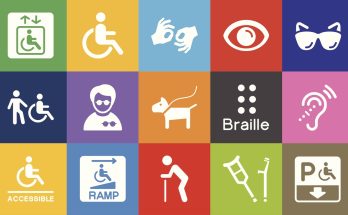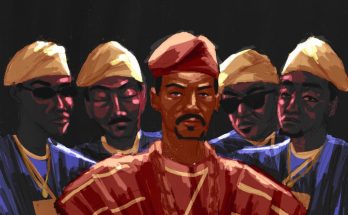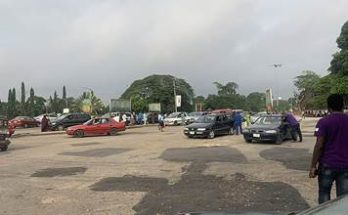–By: Toyinbo Olumide
Travelling is always fun but it is sometimes a very boring and tiring event especially when it is a long one. Just last week, I found myself on the road. Before you think I will tell you where I was and where I was travelling to, please respect my privacy, just know that it was an intra-state journey that only lasted for an hour. I know some people are taking guesses right now. Anyway, let’s move forward.
Corruption in Nigeria is what all and sundry proclaim to fight against. From teachers to lawyers to politicians to engineers to accountants to mechanics to tailors, name it! Even the corrupt officials still claim to be corruption fighters but are we really fighting against corruption or something else?
The journey I embarked on that very day landed me in a very microscopic observation. It was a “usual” happening but that time, I saw a different thing entirely from the “usual” happening. Half an hour after we took off, we reached a checkpoint which I supposed that vehicles’ particulars, drivers’ licences, and some other relevant documents and materials were being checked according to the powers conferred on the “officers” to maintain and check the validity period of drivers’ licences and prosecute persons reasonably suspected to have flaunted any rule at all on the road. I supposed that because of the “dress code” of those officers. Well, if you know you know.
Before we got to the checkpoint, I suspected that I was about to see something that would be eye-opening, so I opened my eyes so well. The driver ordered the passengers to pay their fares. Of course, that implied he got no money and it was somehow a sudden request which needed a prompt response. So, people started to pay as requested to a makeshift collector who was also a passenger. As we got to the check point, I officially knew why he needed money then. Of course, to settle those men. They didn’t even ask for anything before he stretched some notes of Naira to the officer who stopped the bus and he collected it, just as if he collected nothing, no thank you!, no smile!, the officer just waved. I could see some vehicles being packed to be checked in toto because “they seemed not to be ready to do the “usual””, some of them were begging to be let go.
I shook my head in multiple times at the level of bribery and corruption in the country. Yet, these people and even I will be part of those claiming to clamour for a corrupt-free nation.
The story never ended there.
As we proceeded in our journey, the driver started lamenting in Yoruba, how our society is deeply into the mud of corruption that it would take a heavenly wash before we get cleanse of the menace. He claimed those officers constitute part of the people that will never make corruption leave this country. Some of the passengers were already supporting him, saying people in those officers’ category constitute more in the percentage of corruption in the country. I sneered.
Funnily to my greatest pleasure, an elderly man who looked well-read asked the driver frenetically “Baba, don’t you have the documents-particulars and licences- they ought to check there ‘ni’?
Then, Baba started the cock and bull story, he claimed that the last time he renewed his licences was about two years ago when he bought the vehicle from his friend.
I was wowed, about two years ago? For a commercial intra-state driver? And he has been moving up and down with the vehicle. He even claimed there are some of his colleagues that they are in the same shoe.
The elderly man then started to talk senses into the man’s reasoning faculty. He claimed he was part of the act he was claiming to be totally against. He said he was more than corrupt too, for not doing the right thing. Though, the driver never accepted the fact stated by the man but some passengers understood what he meant.
Then, I took a deep thought and realised that there are many times we are not fighting against corruption but against “shortchange”. The exercise that took place between the driver and those officers was an EXCHANGE in which, the driver paid the officers an amount of money to let him go, in a bid to escape from the offence[s] he had committed. The driver was only lamenting because he was “shortchanged”. He paid more for a lesser exchange; it is only the non-partaker in the transaction that can claim to fight corruption, not him. He only claimed to be a corruption fighter, whereas, he was just fighting against shortchange. That is what most people fight against, not corruption but shortchange.




